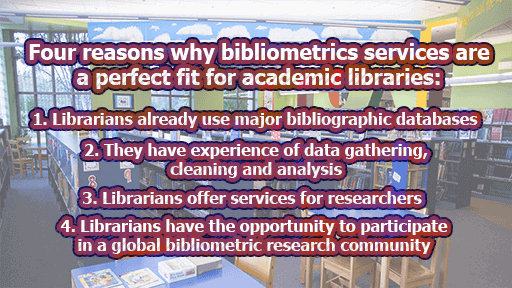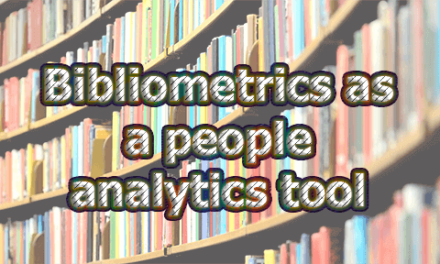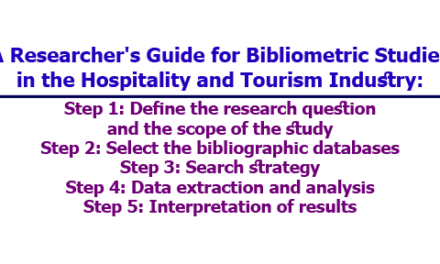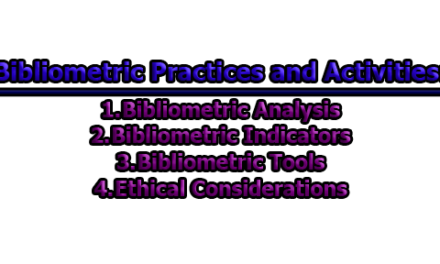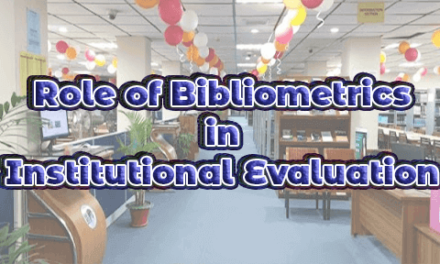Bibliometrics is the use of statistical methods to analyze books, articles, and other publications. Bibliometric methods are often used in the arena of library and information science. The sub-field of bibliometrics that deals with the analysis of scientific publications called scientometrics. Citation analysis is a commonly used bibliometrics method based on quotation graphs, a network of quotations in documents, or representations of graphs. Many research fields use bibliometric methods to identify the impact of their field, the influence of a group of researchers, the influence of a particular paper, or the papers that are particularly influential in a particular field of research. Bibliometrics has a wide range of other applications, such as descriptive linguistics, the development of thesaurus, and the evaluation of reader usage. In this article, we are going to know the definition of bibliometrics and four reasons why bibliometrics services are a perfect fit for academic libraries.
Definition of Bibliometrics
There are several definitions are being of the term ‘bibliometrics’. Mentionable some of them are given below:
“Bibliometrics is the quantitative study of literatures as they are reflected in bibliographies. Its task, immodestly enough, is to provide evolutionary models of science, technology, and scholarship.” (White & McCain-1989)
“Bibliometrics itself needs the continued interest of outside experts, statisticians, and others, in developing and refining its techniques.” (Brookes-1990)
“Bibliometrics is the quantitative study of physical published units, or of bibliographic units, or of surrogates of either …” (Broadus-1987)
From the above definitions, we can say that bibliometrics is the use of published literature (articles, books, conference proceedings, etc.) for measuring research activity e.g. output volume, science ‘quality’, interdisciplinary, networking.
Four reasons why bibliometrics services are a perfect fit for academic libraries:
- Librarians already use major bibliographic databases;
- They have experience of data gathering, cleaning, and analysis;
- Librarians offer services for researchers;
- Librarians have the opportunity to participate in a global bibliometric research community.
Not all these arguments are equally convincing. It is true that there is an evident connection between bibliometrics and library licensing and support to the use of bibliographic databases. Yet librarianship has traditionally attracted people trained in humanities and relatively few library roles involve data manipulation and analysis. Also, while a focus on information literacy implies a professional interest in guiding students to identify quality in research publication, librarianship typically positions itself as a service profession; the element of evaluating academics’ research quality fits uneasily with this.
References:
- Cox, A. et al (2019). Competencies for bibliometrics. Journal of Librarianship and Information Science, 51(3), 746–762
- HOOD, W.W. & WILSON, C.S. (2001).The literature of bibliometrics, scientometrics, and informetrics. Scientometrics, 52(2), 291–314.

Library Lecturer at Nurul Amin Degree College

